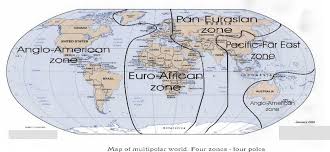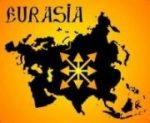If you’re a fan of looking into fringe ideas, you may be familiar with the National Bolshevik Party or names such as Alexander Dugin or Eduard Limonov. If not, maybe you’ve heard about them in conspiracy circles. Yes, conspiracies, we’ve all looked into them, but what if you have a political ideology that’s based on conspiracy—a conspiracy of conspiracies. Eurasianists might not like that claim, but their geopolitical strategy of subversion would definitely fit the category.
So What Is Eurasianism?
In a nutshell, Eurasianism is the idea that Russia, the former soviet sphere, and much of east Asia are actually one unified geopolitical civilization against the American led west. People who ascribe to this idea formed the Eurasianist Party under Alexander Dugin, a former ideologue of the National Bolshevik Party and current advisor to many high-ranking Russian officials; though the depth of his influence is debated.
What’s The Threat To Eurasia?
I’ll have to make a separate article about the National Bolshevik Party, but to sum it up, the NBP were an ideological syncretic fringe party that merged far-left economics with far-right socio-cultural values in Russia. They were very much against Putin and members consisted of all kinds of rebellious characters on the outskirts of mainstream society. The movement became such a threat that President Vladimir Putin outlawed them in 2007.

As a result, there was a split in succeeding organizations between the two main leaders- Alexander Dugin and Eduard Limonov. Eduard Limonov formed “the Other Russia” party with a more left leaning synthesis of national Bolshevik ideas. Meanwhile, Alexander Dugin formed the Eurasianist Party with a more far-right and traditional base. Any National Bolshevik or Neo-Eurasianist reading this may disagree and have their heads spinning since they claim to be above the contemporary “right vs. left” dichotomy.
Why Not Right or Left?
One reason: Liberalism—the arch enemy of Eurasianism. When I talk about Liberalism, I’m talking about classical liberalism and its principles of individual rights, market economies, and representative democracy which are foundations of western political thought. The Left and Right dichotomy has its roots in the French Revolution, which in Dugin’s view is a bourgeois and liberal revolution with no relevance to the Russian “Eurasian socio-political sphere”.
Dugin sees a Russian dominated Eurasia as being eternally at war with the American led western “Atlanticist” civilization. The reason for this unique name is that the west is a seafaring culture with domination via maritime routes based originally in the Atlantic Ocean. Meanwhile, Eurasia (consisting of the central Asian steppes, Ural Mountains, etc) is a land based mass which provides natural geographical protection from the socio-economic and cultural values that the Atlanticist west spreads.

Dugin accuses the American led west of spreading western liberal ideas around the world which are not native to the cultures that are being imposed on. Instead of a uni-polar world led by the American Empire, Dugin believes there should be a multi-polar world where each cultural sphere develops its own values and traditions independently of each other, hence the rabid ultra-nationalism of the Eurasianists. Being traditionalists, the Eurasianists argue that the rugged individualism of the west degrades collective culture, leaving the individual atomized and lost, with no connection to his or her collective roots, deeming enlightenment ideas as an anti-civilizational force that must be stopped.
A Multi-Polar World?
The Eurasianists believe that there are at least four major cultural spaces that are based on geopolitics, with more minor cultural spheres underneath.

There are the Atlanticists, which are the Anglophone western world led by America and espouse Liberalism as their main political force. Next, is the Romano-Germanic civilization which is most of western Europe, currently under domination of the Atlanticists. East Asia would be next which is mostly under the cultural influence of westernization, despite that China is rising. And finally, Eurasia, which is most of the former Soviet sphere of influence, minus Ukraine, the Baltic states and most of the former Eastern bloc, which have—in Dugin’s view—been compromised by the west and infringe on Russia’s traditional territorial influence in the region.
Okay, So What About Eurasian Conspiracy?
Eurasianism and Dugin’s personal philosophy can get very esoteric and abstract–don’t even get me started about his fourth political theory and how time’s subjectivity affects civilizational conflict. To keep it simple, the Eurasianists believe that a Russian led Eurasia as a geopolitical super state will be able to counter the west’s liberal ideas and “send them back whence they came” so each cultural sphere can develop independently without the uni-polar American led, globalist culture. How they plan to do this is up to debate.
Some Eurasianists plan to ally themselves with like minded, far-right westerners to spread disinformation campaigns to divide westerners amongst themselves. Others (including many military cadets who read Dugin’s work) are looking forward to the inevitable conflict that will come about between the land based Eurasia and the sea based Atlantic order, much like Carthage vs. Rome. It all gets very conspiratorial and confusing. It’s a fascinating subject that this author is still looking into, though can get kind of depressing with the whole idea of another global conflict over geopolitics. Anyway, I’m glad it’s still on the fringe and not mainstream…at least for now. We’ll see in the next 30 years how things unfold!
While you’re at it, please check out ypt.life for more content!



